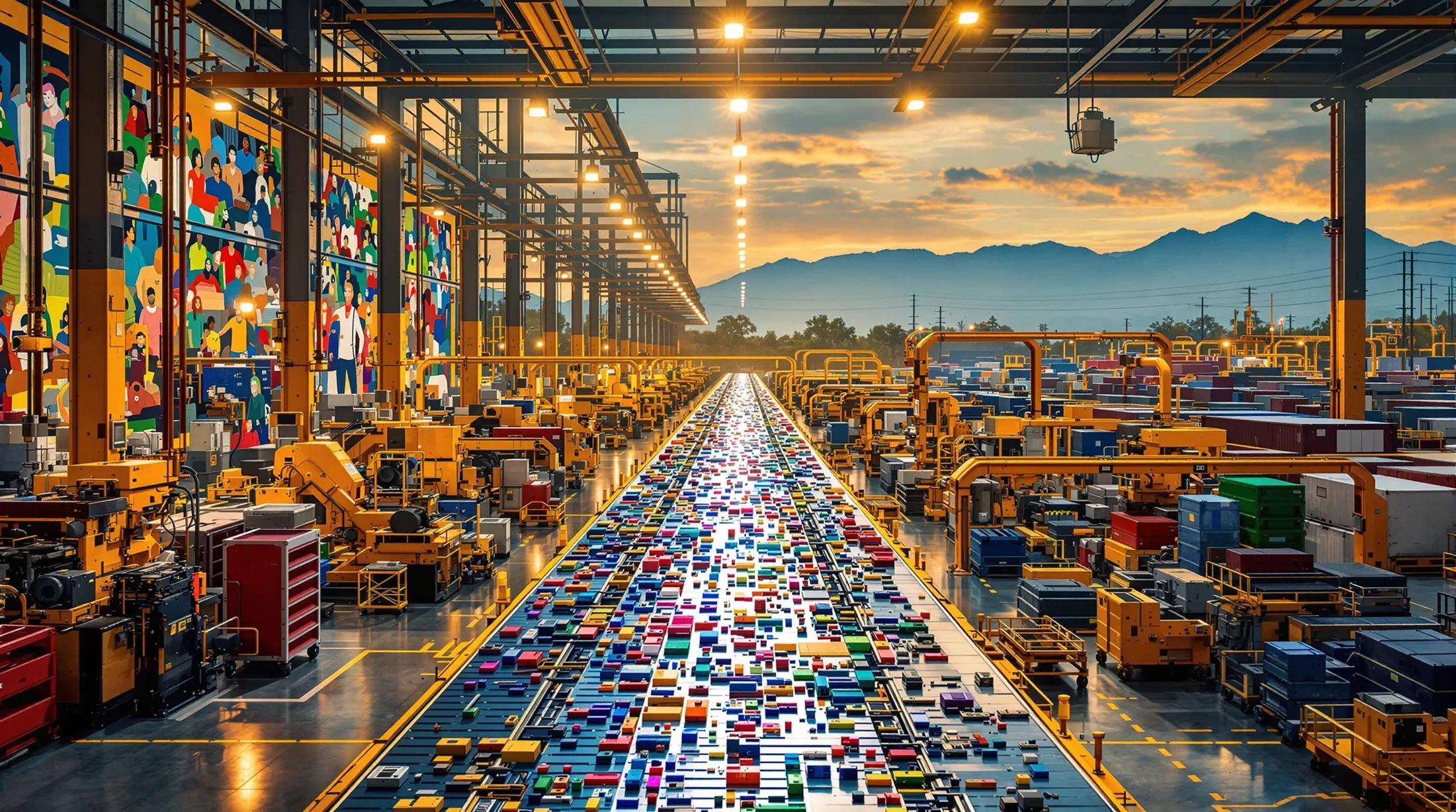Manufacturing in Mexico: Opportunities and Advantages for Businesses
Looking to optimize your manufacturing operations while maintaining high-quality standards? Mexico’s manufacturing sector has evolved into a sophisticated, high-tech production hub that offers compelling advantages for businesses worldwide. Let’s explore why Mexico has become a premier destination for global manufacturing operations.
Overview of Manufacturing in Mexico
Mexico has transformed from a basic assembly operation hub into a global manufacturing powerhouse. The country’s manufacturing sector now features state-of-the-art facilities and sophisticated production capabilities that meet international quality standards. This evolution is supported by:
- Well-developed logistics networks and infrastructure
- Large and increasingly skilled workforce
- Improving security conditions in manufacturing zones
- Strategic industrial parks near major transportation routes
- Lower investment risk compared to other emerging economies
Key Industries in Mexican Manufacturing
Mexico’s manufacturing sector spans diverse industries, with several sectors showing exceptional growth:
| Industry | Key Facts |
|---|---|
| Aerospace and Defense | 14th largest global supplier; hosts Boeing, Airbus, and Bombardier operations |
| Automotive | 7th largest global producer; 3+ million vehicles annually |
| Electronics | Production of computers, TVs, smartphones, consumer electronics |
| Medical Devices | High-precision manufacturing capabilities |
| Furniture | Leverages skilled craftspeople and U.S. market proximity |
Role of Maquiladoras in Mexico’s Manufacturing
Maquiladoras, established in the 1960s, represent a crucial component of Mexico’s industrial development. These export-oriented facilities operate under special customs provisions that enable duty-free import of raw materials and equipment for exported products. The system has evolved significantly, particularly after NAFTA (now USMCA), offering:
- Cost-effective production through lower labor costs
- Reduced transportation expenses due to North American market proximity
- Enhanced quality control capabilities
- Access to Mexico’s extensive trade agreements network
- Technology transfer and workforce skill development opportunities
Advantages of Manufacturing in Mexico
Manufacturing in Mexico combines cost-effectiveness with strategic advantages, making it an attractive alternative to Asian manufacturing, especially for North American markets. The country’s manufacturing ecosystem benefits from the world’s most comprehensive network of free trade agreements, covering over 50 countries.
Cost Benefits and Skilled Workforce
Mexico offers significant labor cost advantages while maintaining high productivity standards:
- Manufacturing wages: $3-5 per hour (70-80% savings vs. U.S.)
- 130,000+ engineering graduates annually
- Young workforce (median age: 29)
- Extensive expertise in mechanical, electrical, and industrial engineering
- Industry-aligned educational curricula
Strategic Location and Trade Agreements
Mexico’s strategic position along a 2,000-mile border with the United States creates exceptional logistical advantages for North American market operations. This proximity enables:
- Same-day shipping to numerous U.S. locations
- Significantly reduced transportation costs
- Faster production adjustments
- Streamlined supply chain management
- Lower inventory requirements
The USMCA trade agreement serves as the foundation of Mexico’s international trade framework, providing duty-free access across North America for qualifying goods. This agreement connects manufacturers to a market of over 490 million consumers with a combined GDP exceeding $24 trillion.
| Trade Agreement Coverage | Benefits |
|---|---|
| USMCA (North America) | Duty-free access, simplified customs procedures |
| CPTPP (Pacific Rim) | Access to 11 Pacific nations, reduced tariffs |
| Additional FTAs | Coverage of 50 countries, international sourcing advantages |
Challenges in the Mexican Manufacturing Sector
While Mexico offers substantial manufacturing advantages, businesses must navigate several operational challenges. The manufacturing environment requires careful consideration of regulatory frameworks, security protocols, and regional infrastructure variations. Companies transitioning to more sophisticated production methods face additional complexities in technological integration and workforce development.
Regulatory and Security Concerns
The regulatory landscape in Mexico demands comprehensive compliance management across multiple jurisdictions. Manufacturers must address:
- Federal labor law compliance
- Environmental regulations
- State and municipal permit requirements
- Industry-specific standards
- USMCA compliance requirements
Security considerations require strategic investment in protective measures, particularly in certain regions. Essential security protocols include:
- Physical security infrastructure
- Employee safety training programs
- Transportation security measures
- Collaboration with local law enforcement
- Specialized security consulting services
Technological Advancements in Mexican Manufacturing
Mexico’s manufacturing sector is experiencing a technological renaissance, embracing advanced manufacturing technologies to enhance efficiency and supply chain resilience. This evolution combines traditional cost advantages with modern production capabilities, supported by increased foreign direct investment and government initiatives in infrastructure development.
Adoption of Automation and Robotics
The integration of automation technologies has accelerated significantly, with notable statistics including:
- 4% increase in industrial robot imports since 2017
- 23% year-over-year growth in robot imports for 2022
- Total robot imports reaching $4.14 billion in 2022
- Growing deployment of AGVs and AMRs
- Enhanced operational efficiency through automated material handling
Government Incentives and Foreign Investment
Mexico has positioned itself as a prime destination for foreign direct investment (FDI) in manufacturing, attracting substantial capital inflows that have transformed the industrial landscape. These investments have funded critical infrastructure improvements, including modern production facilities, transportation networks, and essential utilities. The strategic approach to foreign investment has created a robust manufacturing ecosystem that effectively balances established capabilities with ongoing development initiatives.
The USMCA has significantly enhanced Mexico’s investment appeal by establishing a more predictable trade environment. This agreement has strengthened North American economic integration while offering concrete advantages for manufacturing operations in Mexico. For businesses evaluating global production strategies, Mexico presents compelling benefits through:
- Enhanced market access through preferential trade status
- Established manufacturing infrastructure
- Comprehensive government support programs
- Streamlined cross-border operations
- Integrated North American supply chains
Incentives for Foreign Companies
Mexico offers manufacturers a comprehensive suite of government incentives designed to attract and retain international investment:
| Incentive Type | Benefits |
|---|---|
| Tax Incentives | Reduced/eliminated taxes on manufactured products, accelerated depreciation allowances |
| Import Benefits | Duty exemptions for machinery and equipment, VAT refunds for exporters |
| State-Level Support | Land subsidies, employee training programs, temporary tax holidays |
Beyond financial advantages, Mexico provides access to extensive supply chains across diverse industries including automotive, aerospace, electronics, and medical devices. This established supplier ecosystem offers:
- Reliable local sourcing options
- Reduced logistical complexities
- Enhanced operational efficiency
- Quick access to U.S. markets
- Integrated production networks







